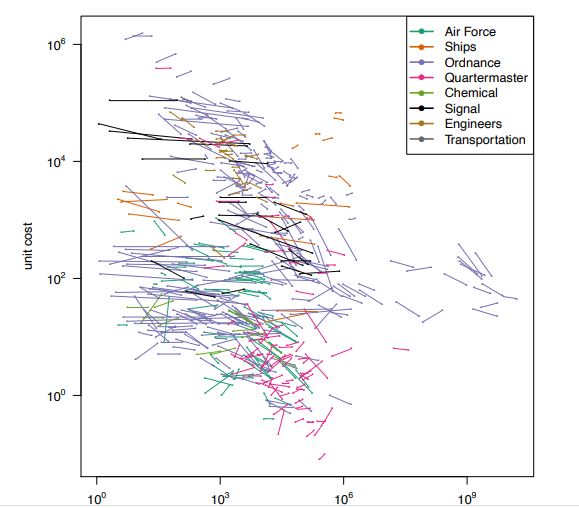Time for an unusual thread. We often hear of the "fight against" climate change. But how does what we need to do against climate change compare with what economies are capable of achieving in a time of war?
To be clear: I do NOT think the war metaphor is appropriate.
But the longer we wait the more extreme the changes we will need to make.
And we're often told that the relatively small reallocation of production and investment will tank the economy. But what actually happens when there are massive, rapid reallocations in times of war?
Finally, it's worth noting that WWII had significant and lasting impacts on technological change and growth. This great paper bit.ly/32ndVGf shows that the massive increases in production has massive impacts in technology learning on a huge range of products 👇

Concluding:
1. The war metaphor is not appropriate, hopefully we can have a smoother transition.
2. Nonetheless, all evidence is that economies can engineer huge reallocations of resources, orders of magnitude above what we would need for climate change.
3. These large reallocations came at a large cost, and necessitated wholesale government control of the economy. Again, hopefully we can act soon and smart enough to do it through smarter incentives: smaller reallocations would have smaller transition costs.
4. There is a huge evidence that large production increases led to massive benefits in terms of technological and institutional learning, which had impacts on post-war growth. There is every reason to think that we would see similar benefits in green tech.
5. Yes we can.












